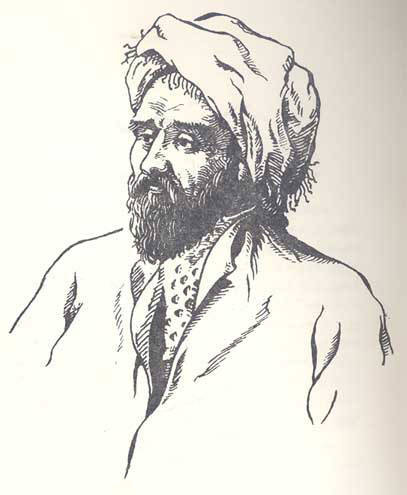
Nalî, 1800-1856, poet & translator.
Nalî, also known as Mallah Xidir Ehmed Şawaysî Mîkayalî (in Kurdish: مەلا خدر (خضر) کوڕی ئەحمەدی شاوەیسی ئاڵی بەگی میکایلی), was born in 1800 in a village of the Sulaymani province. He was a poet and Kurdish translator. To this day, he is still considered one of the greatest Kurdish poets of the classical 19th century period, mainly because of his contributions to the Sorani school of poetry. Sorani is the language spoken in Iraqi Kurdistan.
Life & studies:
Nalî was born in Khaku-Khol, in Iraqi Kurdistan. It was common practice to study the Koran and Arabic in mosques at the time in Kurdistan, so that is how his education began. After that, Nalî became a “Faqi” – a study of the Mullah, a name given to students in mosques.
Nalî travelled a lot during his time as a Faqi, visiting cities in Iraq, Iran and Kurdistan. This travelling enabled him to study with many different scholars, including Mullah Abdoullah Rash. He also studied mathematics with Shaikh Ali Mulla and spent a long time with Mawlana Khalid in Sulaimany.
Where does Nalî’s name come from?
The name Nalî comes from Sanskrit. “Nala” or “Nalika,” refers to “a kind of reed, nali” wind instrument. In modern Kurdish, this refers to a folk music instrument which looks like a flute called a shishal. However, it also the word for pencils, which were traditionally made of reeds. This obviously reveals two important aspects of both the pseudonym and the Kurdish language. The first is that Kurdish has an equivalent as deeply rooted and ancient as Sanskrit. The second is that this pseudonym was given to him for his poetic and literary abilities to charm his listeners, as does a reed player.

Literary contributions:
Along with Kurdi and Salim, Nalî contributed in making Sorani the literary language of southern Kurdistan. Nalî works and his influence contributed to the ‘renaissance’ of the Kurdish language, which had lost its popularity in literary works before him. His most famous works were written in lower Kurmanji dialect, Sorani. He wrote in this language in the midst of a tumultuous period of Ottoman oppression, where returning to one’s cultural roots seem both impossible and essential. To this day, Nalî’s influence on Kurdish culture remains, as Sorani has now become the primary dialect of Kurdish in Iraq and Iran.
